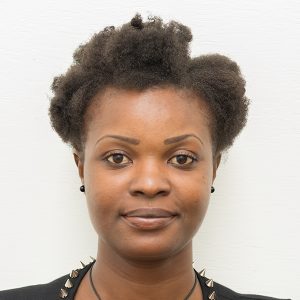VENEZUELAN refugees escaping the harsh economic and social crises in their homeland continue to put immense strain on health services provided by Guyana’s border communities.
Dozens of the Spanish-speaking nationals are being accommodated on a weekly basis, and this regional officials say, is not only draining medical supplies, but causing authorities to increase budgetary allocations. Regional Chairman Brentnol Ashley told the Guyana Chronicle that the situation is one of concern, since the number of persons coming across the border for health reasons continues to increase.
Most of the cases currently being handled have to do with malaria and the stocks of medication are insufficient, Ashley said. “There is not enough to suffice for local content,” the regional chairman noted.
Ashley highlighted that many Guyanese are returning from Venezuela with their families and this too has added to the situation. In other cases, Venezuelans of Guyanese parentage or other ties are also seeking refuge. While dozens of the foreigners come looking for assistance, some are opting to settle.
Ashley told the Guyana Chronicle that the region dispatched a letter to the Head of State highlighting a number of grave matters, particularly those of security concerns. Apart from health concerns, Ashley said he highlighted the issue of locals who were being harassed, attacked and even killed by the Venezuelan gang, “Sindicatos”. The chairman said that miners who ventured beyond the border were being harassed and threatened. Of much more concern, he related, those same gang members were now being spotted venturing into communities such as Whitewater and as far as Kumaka.
Additional concerns relate to the exchange of drugs and guns for food. Ashley said that while there are unofficial reports relating to the trade of guns for food, he said it was confirmed that drugs were getting into the communities. Added to that, the regional chairman said that the increased number of foreign nationals into communities has also seen an increase in disorderly behaviour, breaking and entering and petty crimes.
Farmers
In another case, Ashley pointed out that Venezuelan farmers seeking cash were also bringing their produce to be sold here. He said however that there is no authority to ensure proper procedures relating to goods entering the country. He said the cattle, fruits, vegetables and other goods coming from Venezuela are not examined by local port authorities and this raises various types of concerns.
Ashley pointed out that several recommendations were made to help address the concerns of the border communities. As it relates to health, the chairman said that a larger budget is being discussed, while an increase in medication quota is being requested. He said the region has upped its vector control duties, especially in areas with a high number of malaria cases.
President Granger’s visit to the region sought to reassure citizens of the government’s intent to ensure the integrity of Guyanese territory. President Granger told residents that while there is an end to provocation by Venezuela in sight, all branches of government, along with the security forces and residents, must work together to defend and protect the country, noting that government will do everything in its power to ensure their safety. “We want to make sure that you are safe and I’m here because I’m concerned about your safety.
I’m here because I don’t want anybody to attack you; I don’t want anybody to hurt you; I don’t want crimes to be committed against you,” he said. The Guyana Defence Force has since set up a patrol base at Whitewater and President Granger said the military presence is intended to neutralise any illegal activity and provide a 24-hour guard system to ensure maximum security. President Granger also urged residents to create Community Policing Groups (CPGs).
“The police and the army cannot be everywhere. We want you to be able to protect your own community so… I’ll ask the chairman [Regional Chairman] to sit down with the army, the police and the Toshao so that we can decide on how best we can help you to protect yourself… Every Guyanese must feel safe in his or her own country,” the President said.





.jpg)








